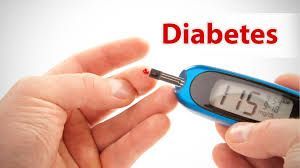DIABETES AND THE WAY FORWARD
 www.terainzhealthcare.net.ng
www.terainzhealthcare.net.ng
Diabetes, often referred to by doctors as Diabetes mellitus, describes a group of metabolic diseases in which the person has high blood glucose (blood sugar) either because insulin production is inadequate, or because the body's cells do not respond properly to insulin, or both.
People with diabetes either do not produce enough insulin, a hormone that is needed to convert sugar, starches, and other food into energy needed for daily life, or cannot use the insulin that their bodies produce. As a result, glucose builds up in the bloodstream.
Why is it called diabetes mellitus?
Diabetes comes from Greek, and it means a "siphon". Aretus the Cappadocian, a Greek physician during the second century A.D. named the condition diabainein. He described patients who were passing too much water (polyuria) - like a siphon. The word became "diabetes" from the English adoption of the Medieval Latin diabetes.
In 1675, Thomas Willis added mellitus to the term, although it is commonly referred to simply as diabetes. Mel in Latin means "honey"; the urine and blood of people with diabetes has excess glucose, and glucose is sweet like honey. Diabetes mellitus could literally mean "siphoning off sweet water".
In ancient China people observed that ants would be attracted to some people's urine, because it was sweet. The term "Sweet Urine Disease" was coined.
Types of Diabetes
Type 1 Diabetes: Also known as juvenile or insulin dependent diabetes, type 1 diabetes occurs when the cells of the pancreas that are responsible for producing insulin are destroyed by the immune system. As a result, the pancreas permanently loses its ability to produce enough insulin to regulate blood sugar levels appropriatelyType 2 Diabetes: This form of the disease makes up 90% or more of all cases of diabetes. It usually develops in adulthood. It occurs when the pancreas cannot make enough insulin to keep blood glucose levels normal and is made worse by poor food choices, a sedentary lifestyle, and being overweight. Diabetes is a serious condition, but many people with type 2 diabetes do not know they have it.Gestational diabetes: This type affects females during pregnancy. Some women have very high levels of glucose in their blood, and their bodies are unable to produce enough insulin to transport all of the glucose into their cells, resulting in progressively rising levels of glucose.
Type 1 Diabetes:
Type 1 diabetes can occur at any age, but usually starts in people younger than 30 years of age. Symptoms are usually severe and occur rapidly. They include:
• Increased thirst • Increased urination • Weight loss despite increased appetite • Nausea
• Vomiting • Abdominal pain • Fatigue • Absence of menstruation
Type 2 Diabetes:
People with type 2 diabetes often have no symptoms, and their condition is detected only when a routine exam reveals high levels of glucose in their blood. Occasionally, however, a person with type 2 diabetes may experience symptoms listed below, which tend to appear slowly over time:
• Numbness or burning sensation of the feet, ankles, and legs
• Blurred or poor vision
• Impotence
• Fatigue
• Poor wound healing
In some cases, symptoms may mimic type 1 diabetes and appear more abruptly, such as:
• Excessive urination and thirst
• Yeast infections
• Whole body itching
• Coma: In severe cases, high blood glucose may affect water distribution in brain cells, causing a state of deep unconsciousness, or coma.
Complications linked to badly controlled diabetes:
Below is a list of possible complications that can be caused by badly controlled diabetes:
Eye complications - glaucoma, cataracts, diabetic retinopathy, and some others.
Foot complications - neuropathy, ulcers, and sometimes gangrene which may require that the foot be amputated
Skin complications - people with diabetes are more susceptible to skin infections and skin disorders
Heart problems - such as ischemic heart disease, when the blood supply to the heart muscle is diminished
Hypertension - common in people with diabetes, which can raise the risk of kidney disease, eye problems, heart attack and stroke
Mental health - uncontrolled diabetes raises the risk of suffering from depression, anxiety and some other mental disorders
Hearing loss - diabetes patients have a higher risk of developing hearing problems
Gum disease - there is a much higher prevalence of gum disease among diabetes patients
Gastroparesis - the muscles of the stomach stop working properly
Ketoacidosis - a combination of ketosis and acidosis; accumulation of ketone bodies and acidity in the blood.
Neuropathy - diabetic neuropathy is a type of nerve damage which can lead to several different problems.
HHNS (Hyperosmolar Hyperglycemic Nonketotic Syndrome) - blood glucose levels shoot up too high, and there are no ketones present in the blood or urine. It is an emergency condition.
Nephropathy - uncontrolled blood pressure can lead to kidney disease
PAD (peripheral arterial disease) - symptoms may include pain in the leg, tingling and sometimes problems walking properly
Stroke - if blood pressure, cholesterol levels, and blood glucose levels are not controlled, the risk of stroke increases significantly
Erectile dysfunction - male impotence.
Infections - people with badly controlled diabetes are much more susceptible to infections
Healing of wounds - cuts and lesions take much longer to heal
For Treatment methods and how to go about it, Simply Visit http://www.terainzhealthcare.net.ng/diabetes.html
I remain My Humble self, Terainz.